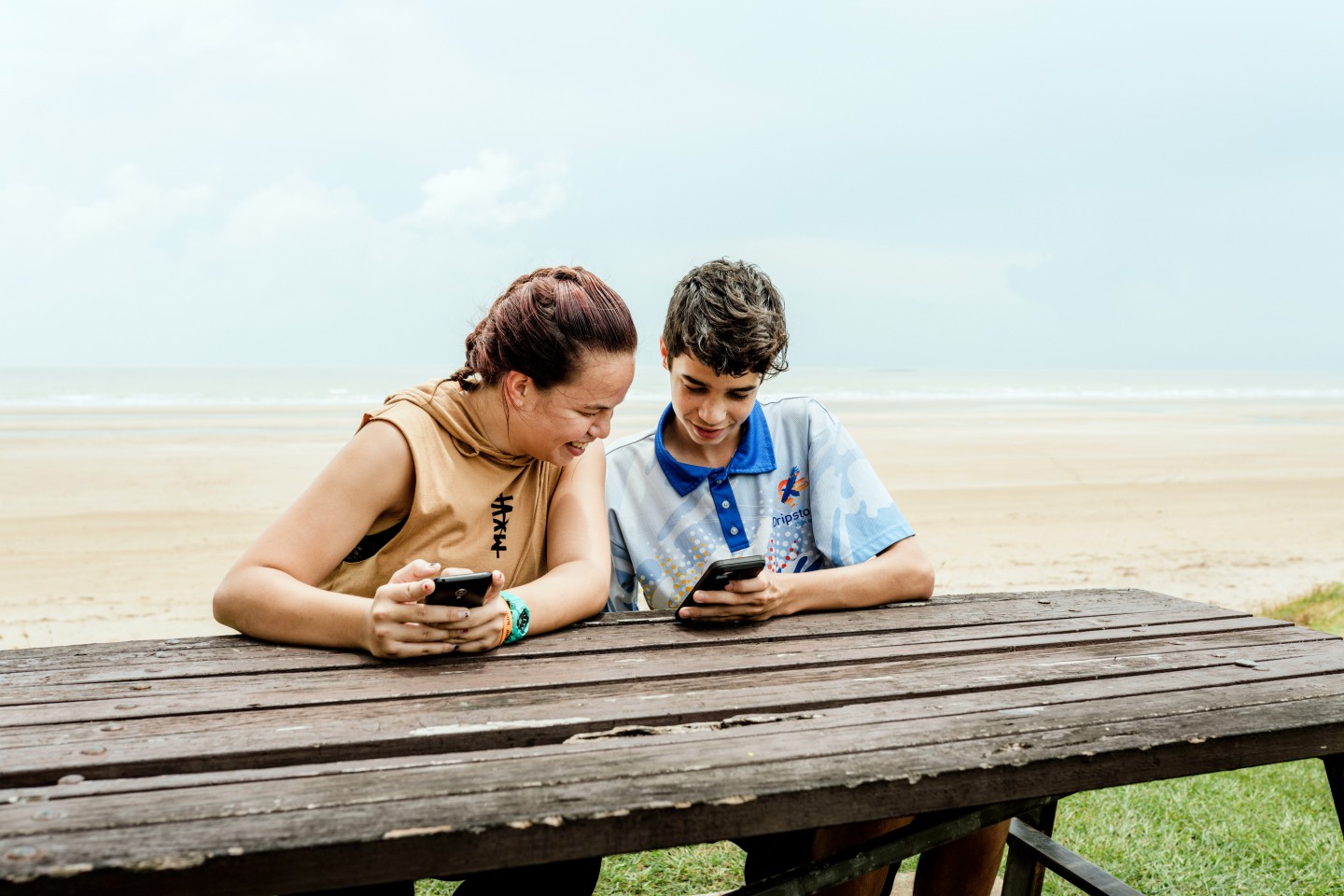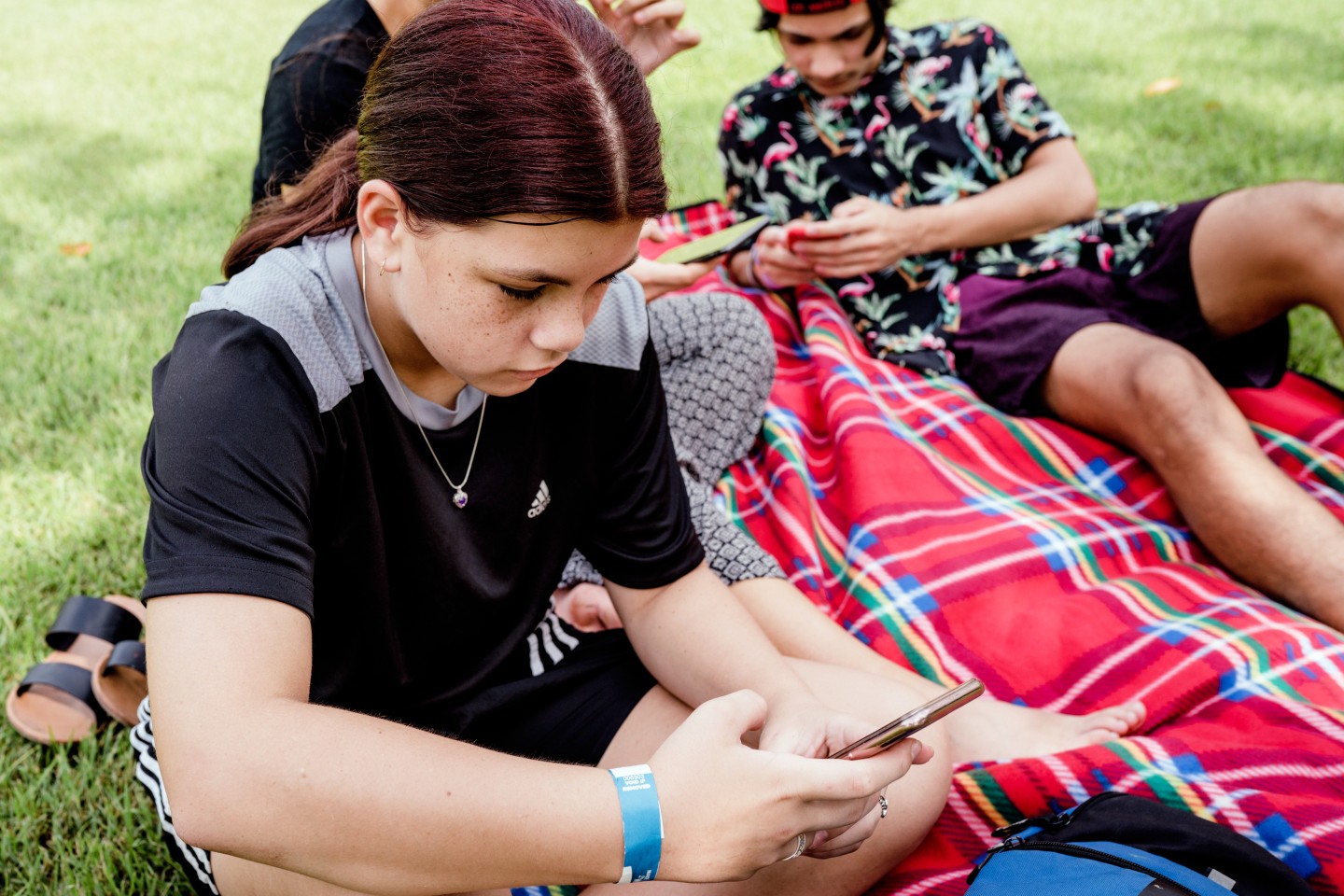Social media plays a complex role in many young people’s lives. It can be a source of entertainment, identity exploration, creativity, self-expression, and connection with friends, family, and wider communities. For some, especially those who have experienced exclusion or isolation offline, online spaces may be where they have found safety, belonging, and people who understand them.
The upcoming restrictions on social media access for certain age groups may have varied impacts — from little to no change for some, to significant distress for others.
These effects may be especially pronounced for young people who rely on digital spaces for connection, including:
-
Young people who are neurodivergent who may preference online communication
-
Young people with a disability who may rely on the accessibility of online platforms to stay connected
-
LGBTIQA+ young people who may connect with affirming communities online when this support is less available offline
-
Aboriginal and Torres Strait Islander young people for whom digital spaces can help maintain cultural connections, especially across distance
-
Young people from multicultural backgrounds who may use social media to connect with extended family, heritage language, or cultural networks overseas
-
Young people that have needed to exit out of mainstream schooling, perhaps for mental health or physical health reasons, and do not have the same level of face to face connection with their peers
-
Young people in rural, regional, or remote areas where social opportunities may be limited and where digital spaces provide critical connection
The impacts of social media will not be experienced equally by all young people. Intersectionality recognises that individuals hold multiple, overlapping identities, such as culture, race, gender, sexuality, disability, socioeconomic status, and geographic location. These shape how they experience systems, opportunities, and barriers. For some young people, social media plays a vital role in identity exploration, community connection, and accessing support, particularly for those from marginalised, rural, or LGBTIQA+ communities. Restrictions may have unintended impacts, including increased isolation, loss of identity, access to affirming spaces, or reduced access to community and advocacy networks.
If you are working in a role with young people that might be impacted, such as teaching, youth work, or counselling, here are 7 tips to support the young people in your work navigate these changes in ways that centre safety, belonging, and agency.
1. Stay informed and share accurate information
Young people often turn to trusted adults when rules change. Be ready with clear, current, and reliable information about the restrictions, while being honest about what’s still uncertain. Avoid speculation or sharing unverified sources.
You can read up on the latest here:
-
The e-Safety Commissioner’s website has the official Social media age restriction pages and FAQs, which are updated regularly
-
headspace has also published resources for family and young people with guides and FAQ’s on the social media ban
2. Invite young people’s perspectives
Ask open-ended questions to understand what social media means to them. Listen without judgement — their online life may hold more significance than you realise, especially for those who feel marginalised offline.
3. Recognise diverse impacts
Be mindful that the changes will not affect all young people equally. Consider who in your setting may be more vulnerable to losing safe spaces and trusted connections, and plan additional supports for them.
4. Support connection beyond platforms
Help young people identify alternative ways to maintain friendships, communities, and hobbies, whether through other online spaces, in-person meet-ups, community programs, or safe moderated forums. For some, you may need to actively bridge them into new networks.
5. Watch for signs of distress or disconnection
Changes to social media access can trigger feelings of loss, isolation, or anxiety. Notice shifts in mood, engagement, or behaviour, and check in early. For some, particularly those with existing mental health challenges, these changes could be significant.
6. Strengthen media literacy and coping skills
Use this as an opportunity to support critical thinking about online content, privacy, and safety — as well as emotional coping strategies for dealing with change. These skills will remain valuable no matter how platforms evolve.
7. Advocate and collaborate
Work alongside families, schools, and community services to make sure young people’s voices are heard in conversations about online safety and rights. Where possible, amplify perspectives from those most impacted, ensuring decisions are inclusive and culturally safe.
If the changes are difficult for a young person
Acknowledge their feelings and validate the importance of their online communities. Link them to culturally responsive, identity-affirming supports, such as QLife, 13YARN, headspace, or community-specific networks.
You can also find tip sheets for young people and family to support adapting to the changes and how to have helpful conversations about changes to social media access.
-
7 tips for young people: Social media restrictions
-
7 tips for starting the conversation with a young person about the new social media restrictions (for family)
Final thoughts
Supporting young people through the social media restrictions is not just about replacing one platform with another. It’s about recognising what those spaces represented- safety, belonging, identity, voice- and helping young people hold onto those values in new and evolving ways. Your role in this can make a difference.
How to get support
If a young person you know is having a tough time and would benefit from support at headspace, they can get in touch with their local headspace centre or use our online or phone-based service at eheadspace.
For immediate help contact: triple zero (000) if it is an emergency
National 24/7 crisis services:
-
Lifeline: 13 11 14 or lifeline.org.au
-
Suicide Call Back Service: 1300 659 467 or suicidecallbackservice.org.au
-
Beyond Blue: 1300 224 636 or beyondblue.org.au
Additional youth support services include:
-
Kids Helpline: 1800 55 1800 kidshelpline.com.au
-
ReachOut: reachout.com
-
SANE Australia: 1800 187 263 sane.org
The headspace Content Reference Group oversee and approve resources made available on this website.
Last reviewed October 2025.
Get professional support
If you feel you need help there are a range of ways we can support you.


